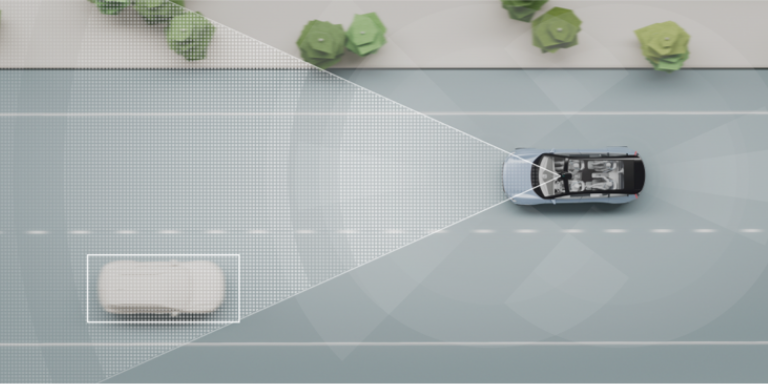
It was in Las Vegas at CES 2022 that Volvo Cars introduced Ride Pilot, an unsupervised driving feature that will be integrated into its upcoming all-electric SUVs. Developers from Luminar and Zenseact collaborated with Volvo on the system, which will be tested in California later this year. It will be launched in California once the tests are successful and Volvo has received the necessary approvals. Drivers of these SUVs will then have the choice of subscribing to its features or not.
Volvo, founded in 1927, is one of the largest automotive groups, owned by the Chinese company Zhejiang Geely Holding (Geely Holding) since 2010. Volvo Cars has set itself the goal of having all-electric vehicles account for half of its sales by 2025 and to tackle the technological challenge of unsupervised autonomous driving. To this end, in 2020 it created Zenseact, its subsidiary responsible for developing autonomous driving software. Ödgärd Andersson, CEO of Zenseact, said at the time:
“Autonomous driving is the technological challenge of the century, and we are approaching it with determination. It’s exciting to bring Zenseact into such a context, as we accelerate development and prepare to deliver software that will enable early car models to drive themselves safely within a few years.”
Luminar is one of Volvo Cars’ technology partners. The company has developed a LIDAR (light detection and ranging systems) that would allow autonomous vehicles to detect obstacles more reliably than its competitors (Google’s Waymo, Quanergy, Velodyne …) thanks to a distant vision, leaving the vehicle more time to react to an obstacle.
Ride Pilot, a collaboration between Volvo Cars, Zenseact and Luminar
Ride Pilot is fully autonomous, drivers using it will be able to take advantage of the time freed from driving to indulge in secondary activities such as reading, writing, working… They will arrive at their destination rested and not having to concentrate on driving, especially in traffic jams or heavy traffic.
The software, developed by Zenseact, in collaboration with Volvo Cars’ in-house development team and Luminar developers, will be a software-sensor combination. It will have at least 24 sensors; among them, Luminar’s Lidar Iris, which will complement five radars, eight cameras and 16 ultrasonic sensors in Volvo Cars’ upcoming all-electric SUV.
Austin Russell, founder and CEO of Luminar, said:
“Luminar’s vision is to democratize next-generation safety and autonomy, and we’re already seeing that become a reality with the launch of the first vehicle on Volvo’s new platform. With Luminar standard on every vehicle, their next SUV has the potential to be the safest vehicle on the road.”
Testing and approvals needed before commercialization
While Ride Pilot will be standard, integrated on Volvo Cars’ next all-electric SUV and will receive updates, it will only be available to customers once confirmed by Volvo Cars’ rigorous verification and testing protocol. This includes validating the technology as safe for highway use under a number of varying conditions.
As part of this verification process, Volvo Cars is already testing autonomous driving capabilities on roads in Sweden with Zenseact, and collecting data across Europe and the United States. By mid-2022, the company intends to begin testing on roads in California, where the climate, traffic conditions and regulatory environment allow for a favorable environment for introducing autonomous driving.
Ödgärd Anderson, CEO of Zenseact, said:
“Setting a new safety standard for the industry requires a rigorous level of testing and verification that will extend globally. Zenseact AD software plays a key role in this new standard and in the journey to zero collisions.”
Once Ride Pilot has been validated through testing and all approvals have been obtained, Volvo will then expand its technology in California with the ambition of the international market.
Mats Moberg, head of research and development at Volvo Cars, concludes:
“We are proud to announce the planned U.S. launch of our first unsupervised induced autonomous driving functionality as we seek to set a new industry standard for autonomy without compromising safety. Having Zenseact’s brand new AD software and Luminar’s LiDAR standard in our new all-electric SUV is a game changer for Volvo Cars, as well as for automotive safety and autonomous driving.”
Translated from Volvo équipe tous ses prochains véhicules électriques de Ride Pilot pour une conduite autonome









